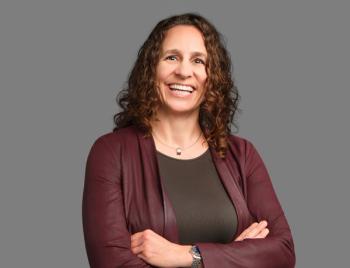
How health systems are missing opportunities to engage patients
Consumers are saying they want more involvement with their providers as they seek to manage their health. That’s a key takeaway from a new report by Kaufman Hall.
Consumers want more choices, and even more involvement, from healthcare providers, according to a new Kaufman Hall report.
The
Consumers are increasingly engaging in activities to improve their health that aren’t tied to visiting a doctor or a health system’s practice, noted Dan Clarin, a managing director at Kaufman Hall and the report’s lead author.
Health systems need to seize the opportunity to build relationships with their patients, the report stated.
“As people adopt behaviors that make them more mindful of their health and wellbeing, they are increasingly interested in integrating those activities with their healthcare experience,” Clarin said in a statement.
“Unfortunately, the health management activities consumers engage in are often disconnected from their clinical care," he said. "By listening to their consumers and integrating their insights, health systems have an opportunity to better meet evolving consumer needs.”
At a time when consumers want more choices, many are frustrated with the lack of options they have, according to the report. Kaufman Hall surveyed about 3,500 consumers to gauge their views.
Roughly four in 10 (38%) of consumers surveyed who get their health insurance from their employer only have access to one plan. One third (33%) of consumers are offered two options. Consumers are getting fewer options for the health choices they want, the report stated.
More than a quarter (27%) said they are in health plans that limit where they can get care, saying only a few hospitals in their area are in their insurer’s network.
The report also noted disparities between those with commercial insurance and those relying on Medicaid. Consumers with commercial insurance engage in eight health management activities, while those on Medicaid are participating in six.
“Today’s insured consumers often have fewer options for health plans, which can translate into less choice for the services they are looking for,” Clarin said in the statement. “At the same time, persistent healthcare disparities are posing major public health challenges. Health systems must be able to both elevate the voice of the consumer throughout their organizations and play a leading role of lifting the health of the communities they serve.”
Most of those surveyed (70%) said they want health systems to be more involved with their health management activities.
Consumers offered three main areas where they would like to engage more with health systems: healthy eating (41%), paying for exercise programs or equipment (40%), or talking to a provider virtually about symptoms (39%).
Many consumers are managing their health without guidance from a provider, and health systems aren’t getting all the information they could on their patients. While a solid majority of patients (59%) who are obtaining mental health services said they are doing so at the direction of a healthcare provider. Conversely, only 43% who are using wearables, such as fitness trackers, are doing so at the suggestion of a provider.
Consumers say they are pursuing their health goals in different ways, with 34% saying they are managing their diet and nutrition, while 31% are suing fitness trackers, and 29% are participating in some kind of physical activity. Roughly one in five (22%) said they are receiving mental health services.






















































































